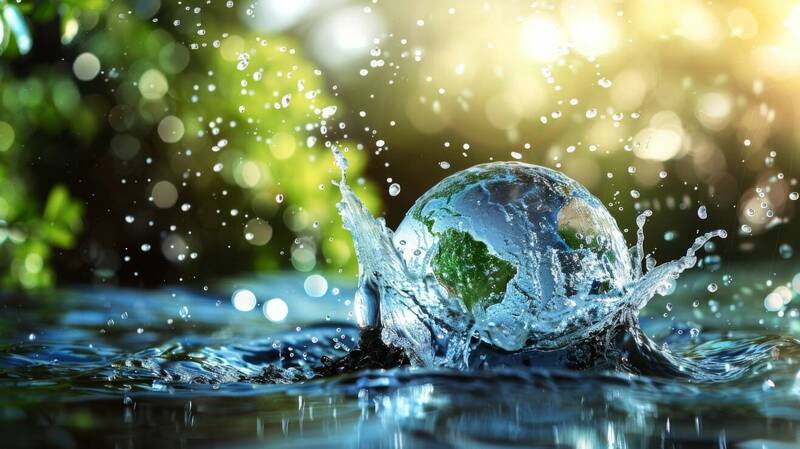Majority of UK consumers willing to pay extra for food products that are water-efficient

A new study from the British Standards Institution has shown that although the UK has made no progress on water security since 2023, there is high appetite from the public to act on the country’s growing water security crisis.
Almost half of the country’s assessed in BSI’s Water Security Indicator, including the UK, made no improvement in their water security status – but 66% of UK consumers polled said they would be more willing to purchase food or beverage from a brand that demonstrates positive action on water efficiency, even at an extra cost.
China, India and the US have been rated as facing the highest level of water security challenges alongside relatively limited progress towards solutions in new analysis published by BSI and Waterwise, while there was no improvement in the water security of 31 countries in the last 12 months. The study combines publicly available data with international polling of over 9,300 people to evaluate how water insecurity is perceived in some of these countries, finding a disconnect between the reality of the challenge, public understanding of its severity, and the action required to turn things around.
Although 60% of respondents recognise water security as an important global issue, and three quarters specifically cite drought in their country as an issue (76%), under half (45%) said addressing water security was as important as addressing climate change. The polling also found that only 15% globally say they see water security discussed regularly by politicians or media, despite the fact that annual water use rose by around 3,500 billion m3 globally between 1900 and 20241 and will worsen with climate change. Put in context, this equates to adding 895m3 of water demand each second or an Olympic sized swimming pool (2500m3) every 2.79 seconds.
Global water demand is projected to grow by around 1%, or 400 billion m3, per annum. On this basis, new calculations show that the world could add 1268 m3 of water demand per second, equating to one Olympic sized swimming pool every two seconds.
In the 2024 Water Security and Solutions Indicator, China, India and the US all score above 50 out of a possible 85, meaning they face some of the greatest challenges and are making limited progress on solutions. Compared with this, the polling data suggests gaps between the reality of the global water security challenge and public comprehension of the scale of the issue – 74% claimed to be confident in their country’s freshwater supply, but this included 85% in India, 82% in Australia, and 73% in the US.
The greatest increase in a water security challenge score was seen in Spain, which went up by five points, due to an increasing proportion of the country’s available freshwater being abstracted, a decrease in the price of water relative to national GDP and a decrease in water use efficiency. This increase is particularly concerning in light of the water scarcity challenges faced by Spain in the last few years, such as the drought emergency declared by the Catalonia regional government in February 2024. Of the 41 assessed, 14 received higher scores representing greater water insecurity in 2024 – these included Türkiye, North Macedonia, the Netherlands, and Belgium. In Asia, China, India, and Japan also received worse scores.
Decreases since 2023, indicating improvements in water security, were generally small and only seen in eight countries, including Sweden, Switzerland, Slovenia and Norway.
Positively, more than half of people (53%) believe in the need to act, saying it is important for individuals to take steps to reduce wastage and promote water security. 73% globally would support the introduction of water use labels on products, reflecting a strong desire for actionable solutions. Similarly, more than two thirds would be willing to spend more on brands acting on water efficiency (68%) and two thirds (67%) would purchase items using less water intensive materials (e.g. recycled cotton) even at greater cost.
Ghinwa Chammas, group director of sustainability, BSI, noted how the UK’s slow progress on addressing water insecurity risks constraining the country’s growth, as freshwater is a finite resource and the research shows that much of our water infrastructure is not currently fit for the future.
“Just as with the climate crisis, we need to invest in future-ready infrastructure and educate consumers to make sensible choices where they can,” Chammas said. “The cost of investing in water security now and increasing awareness of the issue will be nothing compared with the potential cost to households and businesses of not having enough water available for use in the future.”
Susan Taylor Martin, chief executive, BSI called for action, from implementing water efficiency labelling to improving consumer choices, to advancing wastewater management.
Related content
Source: foodanddrinktechnology.com

